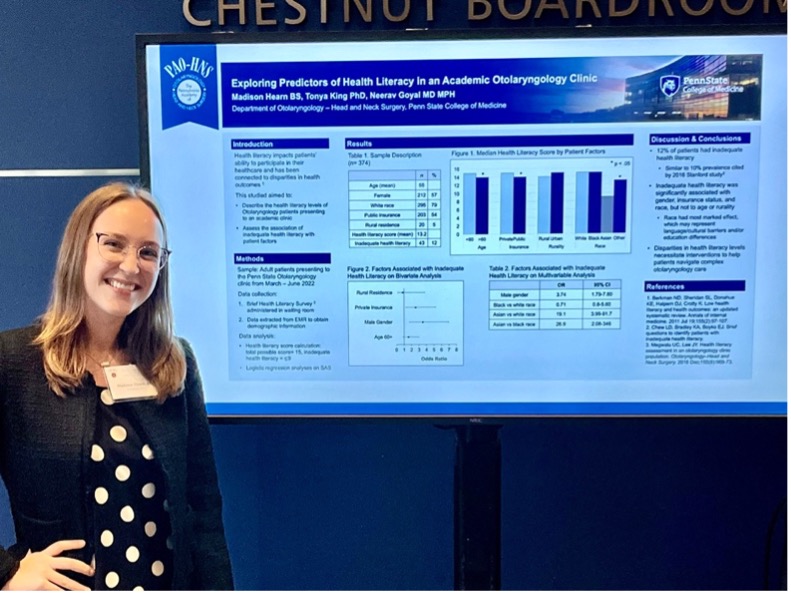Research plays a crucial role in the Department of Otolaryngology – Head and Neck Surgery, as it is an essential component of the institutional mission to be a leading academic medical center through basic and translational research efforts to generate tomorrow’s therapies and cures today. Through clinical trials, the department can bring these cutting-edge innovations to patients when they need them most.
The Department of Otolaryngology – Head and Neck Surgery takes pride in the robust research program that it has built at Penn State Health. The department’s faculty, residents and students are actively engaged in research activities, with diverse interests that span across various areas of study:
- Patient-reported outcomes and quality of life
- Analysis of big datasets (SEER, NCDB, Marketscan, TriNetX, NIS, KIDS)
- Innovation with new surgical technologies
- Basic science with animal modeling
- Translational science research
- Mixed methods research
- Clinical Trials
Whether through clinical trials, translational research, surgical innovation or training the next generation of leaders in our field, Department of Otolaryngology – Head and Neck Surgery strives to move the state of the science forward.
Jump to topic
Search
Research Leadership


Publications and Presentations
Year after year, the program has excelled with representation at institutional, regional and national meetings and with publications in major otolaryngology journals.
Faculty and trainees attend and actively participate in meetings such as:
- Pennsylvania Academy of Otolaryngology – Head and Neck Surgery Annual Scientific Meeting
- American Head and Neck Society International Conference
- American Academy of Otolaryngology – Head and Neck Surgery Annual Meeting
- American Academy of Facial Plastic and Reconstructive Surgery Annual Meeting
- Combined Otolaryngology Spring Meetings

A medical student presents poster at PAO HNS 2023 Meeting in Lancaster.

Division of Facial Plastic and Reconstructive Surgery members attend the 2022 Annual Academy of Facial Plastic and Reconstructive Surgery Meeting in Miami, Florida.
Contact Us
For details on Department of Otolaryngology – Head and Neck Surgery research, contact Caia Hypatia at 717-531-0003 x287-291 or chypatia@pennstatehealth.psu.edu.
